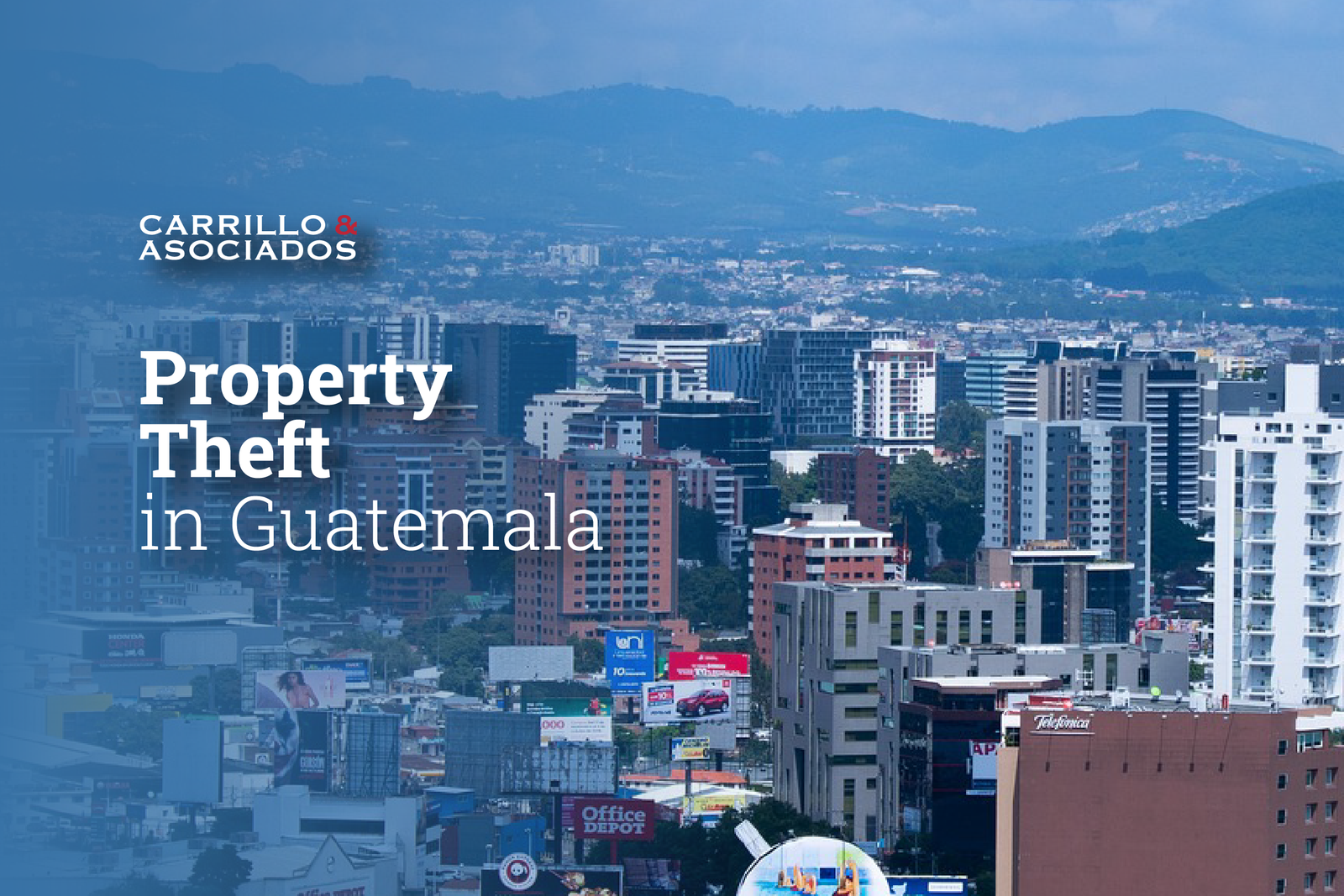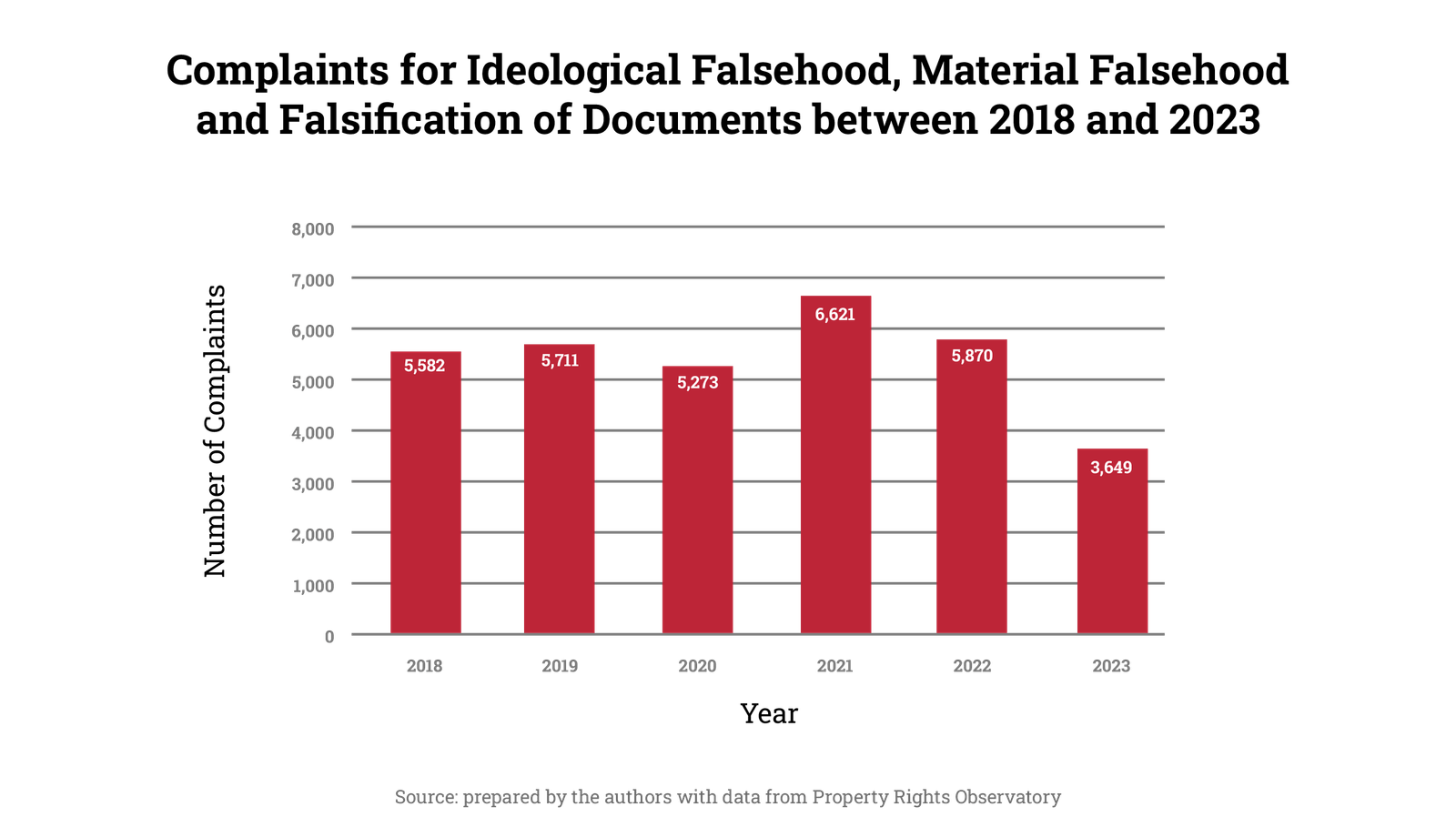
Property theft is a problem that affects thousands of owners in Guatemala every year. Criminal organizations made up of lawyers, officials, figureheads and middlemen are involved in fraudulently obtaining real estate. Los Topacio, one of the most notorious gangs in recent history, appropriated at least 29 properties using false documents. The rightful owners only realized this when it was too late.
The investigation by the Attorney General's Office (AGO) revealed how the gang had been operating since 2000. First, they studied their victims carefully, preferring to go after elderly people or foreigners, vulnerable people. Then, the notaries would register the properties in the name of a front man, who would sell them at affordable prices to other people. The lawyers would forge the signatures of the legitimate owners on deeds of sale and then register the property in the General Registry of Property.
One of the biggest challenges of the investigation was that victims were threatened by the criminal group not to report or testify. Of the 100 victims who were intimidated, only three participated as complainants in the legal process against the gang.
On October 7th, 2016, 30 members of Los Topacio were convicted. Although this network has been convicted, the property thefts continue. Here we tell you how these criminals operate and how to protect yourself.
Modus operandi
One of the common ways in which criminal gangs operate is that they identify abandoned properties and inhabit them. Then, they work with corrupt officials to obtain the usurped property by forging legal documents. These criminal groups have developed into sophisticated structures involving professionals and officials.
A second method is to process a supplementary title deed and thus steal the property. This procedure was originally intended to ensure that people could register ownership of their real estate and enjoy their property rights. When there is no legal document of ownership, obtaining a supplementary title deed is the first step to obtain the official title deed. In this way, the person will be registered as the rightful owner.
Unfortunately, this procedure has been used to steal real estate. Fraudsters may take advantage of the lack of vigilance at the Property Registry or manipulate corrupt officials to obtain fake documents that appear legitimate. Criminals forge title deeds and contracts of sale of possessory rights.
Additionally, they need the complicity of the municipality where the property is located to generate a report about the property, which will help to obtain the supplementary title.
When fraudsters obtain forged documents, they can register them with the Property Registry and in this way, obtain legal title to the real estate. Once this process is completed, the real owners may find themselves in a difficult and costly situation when trying to recover their property.
Complaints
Faced with this situation, in 2021 the Attorney General's Office (AGO) created the Prosecutor's Office Against the Crime of Usurpation, which is dedicated to the investigation of forgery of documents and usurpation of property.
Between 2018 and 2023, more than 30,000 complaints have been received for the crimes of ideological falsehood, material falsehood and falsification of private documents, all associated with property theft. 81% of these were filed in the Department of Guatemala.

Unfortunately, many of these complaints do not prosper in the AGO. Between 2018 and 2022, 97% of the complaints handled by the institution were dismissed. Only 1.4% were convicted or acquitted.
Ways to Recover a Property
Despite the limitations of the AGO in investigating complaints, there are actions that you can take to protect and recover an estate.
The Guatemalan Constitution guarantees the right to private property. This means that there are legal remedies that can be used to try to recover property that was lost by fraudulent means.
When filing an amparo relief proceeding against the Registrar of the Property Register, the Constitutional Court (CC) has established criteria[1] to respond to these issues. It has defined two types of protections:
- Full Protection. The court of amparo can order the cancellation of the falsified registrations and documents to restore the victim's ownership. For this measure to be used, sufficient evidence must be presented to allow an unequivocal conclusion to be drawn that the documents from which the challenged registrations originated were invalid.
- Partial Protection. It applies when there is insufficient evidence of fraud, but the circumstances give rise to suspicion. In this situation, the court grants a partial or temporary injunction to preserve the rights of the alleged victim. This ensures that his or her property is not registered in the name of other persons while the lawsuit is being prepared before the ordinary jurisdiction and evidence is being gathered.
For any of these procedures to work, it is necessary to have documentation showing the anomalies of what is happening and for the judge to have a reasonable suspicion that the falsehoods may have occurred for him or her to grant the measures. Without this, it will be difficult to persuade the court.
To prevent property theft, it is crucial to monitor your property on a regular basis by means of electronic queries at the Property Registry and to request certifications of your real estate, or to immobilize it, based on the Law on Immobilization of Registered Property. If you wish to take further steps or if you find that they are no longer in your name, please contact us immediately.


[1] Sentences of the CC of July 16, 2013, file 530-2013; July 25, 2013, file 341-2013; August 8, 2013, in file 2058-2013; and July 27, 2021, file 1682-2021.